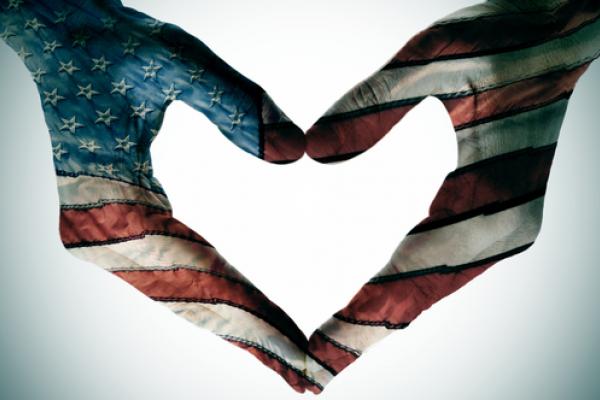I was five years old on Independence Day in 1976. The United States' bicentennial fever had overtaken the entire population. Everything was dressed in red, white, and blue. I remember decorating my tricycle in streamers and balloons for the neighborhood parade. It rained through the entire event, and although I crossed the finish line covered in red and blue dye, my award for "most colorful float" made it all worth it.
Also attended Willie Nelson's Fourth of July birthday party/concert that same year. We camped out under the stars and enjoyed music for days in a Woodstock-like environment. I remember seeing my first naked adult woman there. She and her family – or some group of friends – were taking a break to bathe in the nearby river. Hey, it was the 70s, remember?
But even there in that hotbed of post-hippie activity, everyone displayed affection for our country. Even those who likely had stood in protest against the Vietnam War only years before rose and placed their hands over their hearts when the national anthem was sung and the flag was unfurled every morning.
Somewhere along the way, the idea seeped into our national consciousness that patriotism and political criticism could no longer coexist. Those who questioned or challenged the agendas or motives of those in power were pegged as patently unpatriotic; in turn, those dissident voices increasingly rejected the commonly embraced symbols of patriotism as mere tokens of jingoist American exceptionalism.
Read the Full Article

